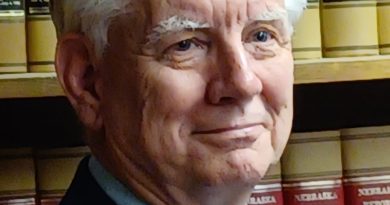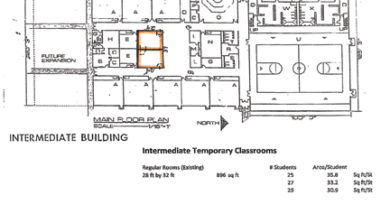Most Rural Nebraskans Skeptical About New Health Insurance Law
LINCOLN, Neb. — Most rural Nebraskans have health insurance and a majority think the nation will be worse off under the new health care law, though many also acknowledge they don’t sufficiently understand the law, according to the 2013 Nebraska Rural Poll.
The 18th annual University of Nebraska-Lincoln poll was sent to 6,320 households in Nebraska’s 84 nonmetropolitan counties in March and April. Results are based on 2,317 responses.
The poll asked participants a series of questions about their own health-insurance situation and about their opinions of the Affordable Care Act, also known as the health care reform law, passed by Congress in 2010.
Fifty-five percent of respondents reported having health insurance through their job benefits or their spouse’s. Twenty-four percent said they have insurance through a government program such as Medicaid or Medicare. Nine percent said they have no health insurance.
Most likely to be uninsured are those who live in North Central Nebraska, people with lower household incomes, people who never married, people with lower education levels and people with food service or personal care occupations.
The poll also found rural Nebraskans to be highly skeptical about the Affordable Care Act. Cheryl Burkhart Kreisel, UNL Extension specialist in entrepreneurship/business development, said that skepticism is not surprising considering the law came from a democratic president and members of Congress, “and we’re polling a very conservative red state.”
Fifty-four percent of poll respondents said they think the country will be worse off under the new law, and just 9 percent think it will be better off. Also, 52 percent think self-employed individuals will be worse off, and 8 percent think they will be better off.
Thirty-five percent said they believed people currently without health insurance will be better off under the new law, while 27 percent think they’d be worse off.
Other findings:
– Thirty-six percent think the new law will be somewhat successful at increasing access to health insurance coverage, while 27 percent think it won’t.
– 58 percent think the law will not succeed in decreasing overall health care costs, while only 13 percent think it will. Also, 44 percent think it will not help increase the quality of health care, while 24 percent think it will.
– Persons living in or near smaller communities are more likely than those in or near large communities to say they and their family will be worse off under the new law – 56 percent compared to 43 percent.
Underlying respondents’ opinions of the new law, though, is an acknowledgment by many that they don’t understand it well. Only 5 percent say they understand the law “very well.” More than 40 percent say they don’t understand it at all and almost one-third say not too well.
“There’s a lot of learning and education that needs to take place,” Burkhart-Kreisel said.
“There’s a lack of trust in the entire system,” added Randy Cantrell, rural sociologist with the Rural Futures Institute.
“It’s a fascinating look at what you get with a major national policy change,” he said.
The Rural Poll is the largest annual poll of rural Nebraskans’ perceptions on quality of life and policy issues. This year’s response rate was about 37 percent. The margin of error is plus or minus 2 percent. Complete results are available online athttp://ruralpoll.unl.edu.
With its 18-year history, the poll has a collection of data about rural trends and perceptions that is unmatched in the country, said Becky Vogt, project manager who’s been working on the Rural Poll since its second year.
The university’s Center for Applied Rural Innovation conducts the poll in cooperation with the Nebraska Rural Futures Institute with funding from UNL Extension and the Agricultural Research Division in the Institute of Agriculture and Natural Resources.


